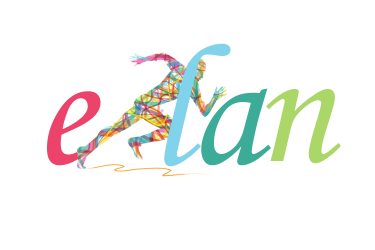Out of a hundred thousand people reading this article, there could only be one who, 1/has the mind power to master the spoken English, and 2/has the talent and skills to master it without the help of a good teacher or coach. I am aware that the notion of mastering the spoken English is debatable and controversial but as far as I am concerned, it simply means attaining native-like fluency and pronunciation. I’m also going to consider the term “native fluency” as the ability to express one’s thoughts, ideas, feelings and emotions verbally uninhibited by a consistent erroneous use of grammar and/or a significant lack of vocabulary.
There are roughly 3 types of second language learners out there. The first type is the Passive type. The passive type just likes to think and read about reaching a native-like level of proficiency in the spoken English. For those learners, it’s merely a question of curiosity, they have no intention to take their English to the next level, they probably don’t think they need to.
The second type is the Active type Converts. Those ones are initially passive but then become active, hence the term “converts”. The active type converts are learners who just like to do plenty of research before DOING. They are reflective, cautiously motivated and mildly responsive to external stimuli. However, once swayed and persuaded, they become DOERS. Whether they persist as doers depends on a range of factors such as the time frame within which they expect themselves to meet their objectives and the level of patience and endurance they have to overcome the hurdles on the way. It is fair to say that I credit my motivation as a blogger to this type of learners as there is some possibility that my words will influence some of those readers and convert them to the DOERS type, which is, as you would’ve probably figured, the Active and third type.
This third type learners would not be reading this article or possibly any other article, they would be either taking lessons or practicing, listening to songs, reading aloud, recording themselves over and over etc.
I love the Active type, the DOERS, but I also have so much respect for the DOERS converts because they know the importance of planning and focus. Yes there are many DOERS who set plans and focus on their goals before they start but also some who lack direction and clarity and who eventually throw in the towel after a while when they don’t see the results they worked hard for. The DOERS converts on the other hand realize that they need to form a good understanding of what they are trying to do before doing it. They research the challenges, learn the solutions and then get to work.
You have to think carefully before you embark on such a journey, you’ve got to ask yourself if you have the time, patience and most importantly drive for that sort of thing. It ain’t gonna be easy! (slang) It’s a long exciting road paved with disappointments. It’s truly a test of character. That’s what I always said to the students who attend my courses and private coaching, I say
“Make no mistakes about it, this ain’t just about your English now, this is about who you are and what you’re made of as a human being. This experience will define you, it’s a test of character.”
Many of them freak out and run for their lives, others stick around and put up a good fight.
In English learning, just like in everything, there are the “sayers”, the “thinkers” and the “doers”. A combination of the former two usually works pretty well. I hope this article will help you to think and do.
What about you then? Do you walk it like you talk it? I guess you know by now!

Leave a Reply